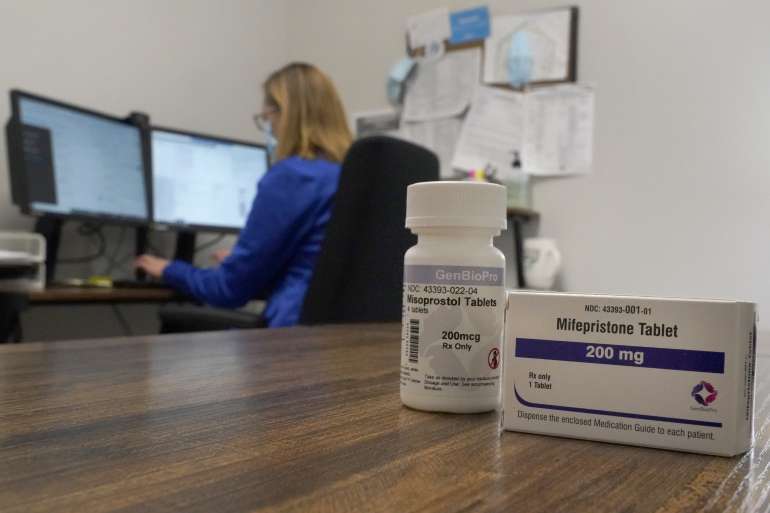Pill restrictions would upend nascent telehealth abortion industry

A decision upholding the most recent ruling, by the 5th Circuit Court, would leave abortion patients choosing between the convenience and privacy of virtual care, versus the more effective medication regimen that would remain available at clinics and doctors’ offices, at least in states where abortion is still legal.
If the decision of a Texas federal judge to overrule FDA approval of mifepristone is ultimately upheld, it would force patients to use misoprostol available from doctors and clinics or pursue surgical abortions, and that only in states where they’re legal.
The uncertainty is “causing a lot of confusion,” said Ushma Upadhyay, professor and co-director of the University of California Global Health Institute’s Center for Gender and Health Justice during a press call hosted by Planned Parenthood. “I’m sure that many [patients] will not know what is the best way forward.”
Numerous studies have found that while using the telehealth providers’ fallback medication, misoprostol, alone is safe and effective, it sometimes requires follow-up care to complete an abortion.
The Supreme Court on Friday stayed restrictions on mifepristone distribution the appeals court imposed earlier this month. So providers can continue to ship the pill by mail in states where abortion is legal.
But the providers told POLITICO they are wary because the Supreme Court could ultimately uphold the appeals court ruling, or the Texas judge, if the case brought by anti-abortion doctors challenging the FDA’s 2000 approval of the pill comes back to the high court.
Currently, the providers ship both pills, which are 98 percent effective at ending a pregnancy when taken in combination.
“Mifepristone and misoprostol work best together,” said Melissa Grant, chief operating officer of abortion provider Carafem.
Misoprostol can be used safely alone, but studies have found it less effective. A recent analysis from the University of Texas found that 88 percent of women — mostly around 10-weeks gestation — were able to complete an abortion safely using only misoprostol.
Other studies showed different efficacy rates, all lower than the mifepristone-misoprostol combination regimen. Depending on dosage and gestational age, women were able to complete an abortion using misoprostol 84 percent to 96 percent of the time, according to a systematic review from 2007.
Patients for whom the pill fails could consult their doctor about either additional doses of misoprostol or surgery to complete their abortions in states where they remain legal. That could lead to failed abortions if patients are unable to follow up.
Kristyn Brandi, a Darney-Landy fellow at the American College of Obstetricians and Gynecologists, said misoprostol, used alone, may also lead to an increased risk of side effects, such as nausea, vomiting and diarrhea. Larger doses with shorter time gaps in between may lead to an increase in these symptoms, according to a 2019 study.
Earlier this month, the 5th Circuit Court, while overruling the Texas judge’s decision to take mifepristone off the market, barred pharmacies from dispensing mifepristone, rolling back a January FDA decision. The court also overturned a 2021 FDA decision allowing abortion providers to mail the pills to patients.
The FDA’s move two years ago launched a burgeoning industry of providers, which serve people seeking abortion with telehealth visits and pills-by-mail.
Some online pharmacies and state governments have stockpiled mifepristone.
Ahmad Bani, CEO of online telehealth provider Wisp, said he is considering other ways of distributing it, such as by directing patients to pick up pills at a doctor’s office or other brick-and-mortar facility, that would comply with a Supreme Court ruling that says it can’t be mailed.
And patients may still be able to access mifepristone online through international pharmacies and organizations that prescribe medication abortion, such as Aid Access, that are not as easily bound by U.S. laws. However, medications shipped from overseas can sometimes take weeks to arrive.
More than half of abortions are achieved with medication, according to a survey from the Guttmacher Institute, a reproductive health research and policy group.